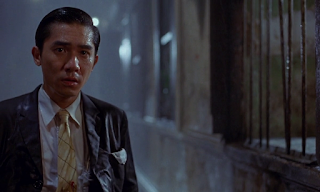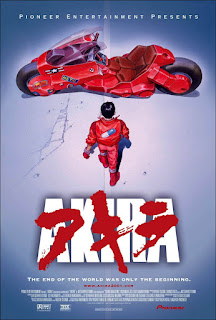In the Mood for Love; or, Secrets of the Flowery Years
It is a restless moment. She has kept her head lowered... to
give him a chance to come closer. But he could not, for lack of courage. She
turns and walks away.
Well, here it is, my 100th blog review. To some bloggers it
may not seem to be a great achievement, but I have never expected to come so
far when I launched this blog over 3 years ago. Many things have changed since
then (which is a subject for another post), but I tried to make the latest
reviews as special as they could possibly be. For my 100th film to be
discussed, I did not want to write about any random movie, but the one which I
regard as one of the most important in the history of moviemaking. Hence, this
is my review of Wong Kar-wai’s In the Mood for Love.
Release Info
Directed by: Wong Kar-wai Starring: Tony Leung Chiu-wai, Maggie Cheung, Rebecca Pan
Language: Cantonese Original Title: 花樣年華 Runtime: 98 min
Synopsis
Hong Kong, the 1960s. Mrs Chan (Tony Leung Chiu-wai) and Mr
Chow (Maggie Cheung) rent rooms in the adjacent apartments on the same day.
They move in with their spouses who are extremely busy as each of them works
abroad. Mrs Chan and Mr Chow often spent their lonely days in the neighbouring
apartments, accidentally encountering each other from time to time. With the
passage of days and weeks, they begin to suspect that their spouses are cheating
on them with each other. Mrs Chan and Mr Chow share their suspicions with one
another, but they do not dare confront the situation. In fact, the two try to
understand how the romance was initiated and they grow closer together in the
process, yet Mrs Chan and Mr Chow do not want their relation to transform into
a typical love affair...
Tenderness of Devotion
First of all, I was quite shocked to discover the polarity
of opinions about In the Mood for Love. I did not expect everyone to
unanimously hail the movie as the art-house masterpiece, but for each positive
comment there is a negative one, for example: 90 minutes of boredom; Wong
Kar-wai is a hack; Why didn’t they just live happily together? Of course,
everyone is entitled to their own opinion, but I suspect on the basis of the
enumerated statements that some of the viewers did not entirely understood the
story that was laid out in this film.
In the Mood for Love is not a standard romance picture focusing
on the development of a burning passion between two people. Rather than that, it is about
the understanding of love as a feeling. Mr Chow and Mrs Chan’s relationship
stems directly from the infidelity of their spouses. Instead of dealing with
this issue, they re-enact the moments of temptation. Through this complex
series of re-enactments, they gradually start caring for each other. Mrs Chan
makes Mr Chow a sesame syrup when he’s sick and Mr Chow asks Mrs Chan for tips
when writing a martial arts serial for a newspaper. They build a perfect world
around themselves in order to escape from their marital solitude, yet at the
same time, they dread to come clean about their feelings.
On the one hand, they do not want to confront their spouses,
but on the other, they are afraid of gossip and social ostracism. "We will
never be like them," says Mrs Chan at one point. The two protagonists are
entrapped in the confinements of their own doubts and insecurities, whereas the
viewers become the voyeurs of their daily interactions. Only when Mr Chow
confesses his love to Mrs Chan is the existence of their microcosm destroyed
completely. "I thought we wouldn’t be like them, but I was wrong," says Mr
Chow. However, it is not the end of their story.
What can I say more about this movie? It is visually
stunning, but the form does not overshadow the thought-provoking content. 15
months of shooting under the skilled guidance of Wong Kar-Wai and two brilliant
cameramen, who provided magnificent cinematography (Christopher Doyle and Mark
Lee Ping-bin), resulted in a breathtaking experience that is In the Mood
for Love. The enchanting and evocative soundtrack provided by Michael Galasso
and Shigeru Umebayashi cannot be forgotten as well. With regard to
performances, Tony Leung and Maggie Cheung are at their very best here,
outstanding and mesmerising with their unforgettable performances.
Recommendations
Highly recommended to anyone who would like to spend a
thoughtful evening immersed in the painting-like world crafted by Wong Kar-wai.
To be honest, I enjoyed the movie more during the second viewing after a couple
of years. It leaves you thinking about such things as love, longing, nostalgia,
and past. I wish that Mr Chow and Mrs Chan could be together, but that’s a
happy ending which does not always take place in real life... All things
considered, I would really like to visit Angkor and whisper into a hole that I
consider In the Mood for Love to be a modern masterpiece of Asian cinema.
He remembers those vanished years. As though looking through
a dusty window pane, the past is something he could see, but not touch. And
everything he sees is blurred and indistinct.
Overall score: 10/10
























